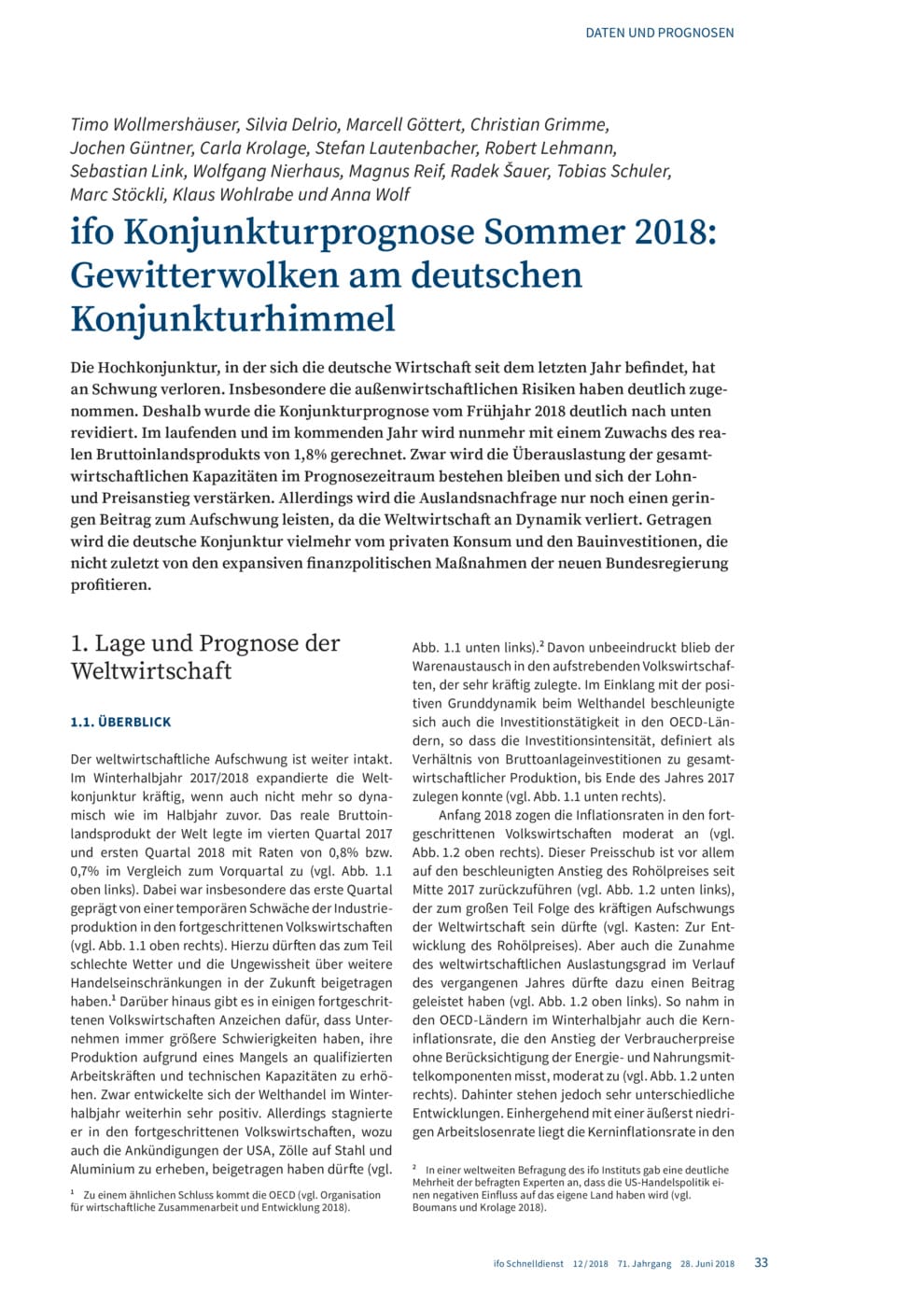ifo Economic Forecast Summer 2018: Storm Clouds Gather over German Economy
ifo Institut, München, 2018
ifo Schnelldienst, 2018, 71, Nr. 12, 33-87

The economic upswing experienced by the German economy since last year has lost impetus. International economic risks in particular have grown significantly. The ifo Institute has downwardly revised its spring 2018 economic forecast considerably as a result. It now expects 1.8% growth in real gross domestic product (GDP) for both 2018 and 2019. Economic capacity shortages will persist over the forecasting period, accompanied by a consolidation in both wage and price increases. External demand, however, will contribute less to the upturn since the world economy will be less dynamic. Private consumption and construction investment will increasingly drive Germany’s economy, boosted by the new federal government’s expansionary fiscal policy measures. The downside risks for this forecast have grown considerably compared to the spring forecast. As of June 2018 the US will apply tariffs of 25% on steel and 10% on aluminium imports from Canada, Mexico and the European Union. Although the overall long-term effects of these tariffs are relatively low, the USA is considering whether to levy additional tariffs on imported vehicles. This would generate far higher overall losses in GDP. At the same time, the EU and China have announced punitive tariffs. This has turned the spread of trade barriers into a risk that is no longer negligible. Oil price increases up until the beginning of this year were mainly demand-side induced. Since then upheavals between the USA and Iran have raised the oil price on the supply side, which will probably have a dampening influence on the world economy. If the pressure exerted by the US government on the EU should become so great that the EU rescinds the EU nuclear agreement, the oil price will continue to rise and curb growth in world production. The downside risks have increased compared to spring in the euro area in particular. If the measures planned by Italy’s new government are implemented, Italy’s high government debt ratio will also continue to increase. This could sow doubts over the sustainability of Italy’s debt. Such uncertainty may be compounded by the euro-sceptical stance adopted by both ruling parties, which in the worst case scenario could threaten the continued existence of the currency union through the exit of Italy, its third biggest member state. The economic implications of such a development cannot be quantified, but the damage done would be significant.